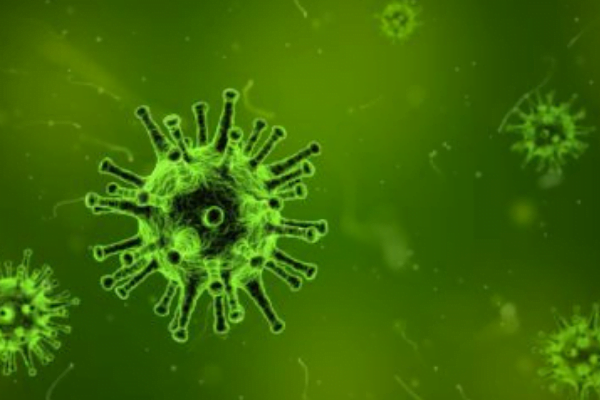The prevalence of obesity is rapidly increasing even in the not-so-developed countries. We know that at least 60% of the people in the UK and USA are either overweight or obese. So, is obesity contagious? Can you get infected by an obese person?
To understand the terms contagious and infectious. Contagious refers to the conditions or disease that can spread directly from one person to another either through physical contact or bodily fluids.
The term infectious is broad, a disease caused by microorganisms that infect the body and which can spread from person to person. In the traditional sense, obesity is not infectious as it is not caused by microorganisms.
The spread of obesity
Investigating obesity and its causes has been a challenge for the last few decades. This has been especially important given that the prevalence of obesity is increasing rapidly. We seem to know what the reasons for our weight gain is. However, we all like to believe that this is not entirely down to us and our individual choices and actions. This is true to some extent. It has been brought to our attention that the genes we inherit are partly responsible for our Body Mass Index (BMI).
Like many other health conditions, obesity is the result of both environment and genetics. Studies have confirmed that several genes may contribute to weight gain although the genetic factors comprise only a small part of the overall risk.
If that’s the case, is it true that obesity could be contagious?
Genetic causes of obesity
- Monogenic obesity – Mutation in single gene MC4R results in severe class 3 obesity.
- Polygenic obesity – Multiple genes are responsible for causing obesity, this is the most common cause of obesity.
- Syndromic obesity – Seen along with developmental delays in children includes Prader-Willi syndrome, Bardet biedl syndrome, cohen syndrome, Alstrom syndrome and Cornelia de Lange syndrome.
FTO gene
Fat mass and obesity-associated genes are found in 43% of the population. The presence of this gene can cause increased hunger levels, increased calorie intake, decreased satiety, and a greater tendency to store body fat and lead a sedentary life.
In genome-wide association studies, it has been found that the FTO allele causes obesity in people more predominantly in those with European ancestry. This gene is responsible for various biological and metabolic processes.
In utero exposure
It has been found that babies who had been born to mothers who had smoked or had diabetes during pregnancy are more prone to become obese in future
Contagion of obesity
Social contagion of obesity has been examined in a few studies and it seems that the ‘obesity virus’ spreads via our social networks, mainly amongst friends.
Social contagion theory of obesity suggests that obesity can spread through social networks like families, friends and coworkers. It also implies that behaviours, attitudes and environmental factors related to eating habits and physical activity can influence weight gain.
A study conducted by Nicholas Christakis and James Fowler in 2007 showed evidence supporting the social contagion theory. The study had over 12000 participants over 32 years and found that people are more likely to become obese if they had close friends, or family members who were obese. There was a higher risk of becoming obese when the close social connection was a spouse or sibling.
Another important aspect of the contagion theory involves psychological and social factors. The power of social influence can be found greatly in people. When people see others around them gaining weight, some may become less motivated to take care of their health. They also become influenced subconsciously to follow the eating habits or lifestyle of the close ones. If one person in the group adopts healthy habits it can inspire others but unhealthy habits can spread quickly within a group and make it harder to break the cycle of weight gain.
It is often the case that within groups of friends, if one of them gains weight, others tend to follow. You can probably relate to this when observing you and your friends and how alike you tend to be. We have all probably also noticed that groups of friends tend to be of similar physique. Is it that we choose people who are similar to us or the other way around? As the old saying goes, ‘who keeps company with wolves, will learn to howl’.
According to studies, our chance of becoming obese increases by an astonishing 57% when our friend becomes obese. Interestingly, there was no such effect when a neighbour or a family member became obese. We can then assume that it’s not necessarily solely the environment that affects our susceptibility to gaining weight. Some studies suggest that proximity does not matter. This suggests that obesity may have more to do with a shift in social norms rather than behaviours.
Infectobesity
Viral cause of obesity
The viruses linked to obesity include adenovirus, CMV, dengue fever virus and treated HIV virus. It has been found that the virus causing the common cold could cause obesity in adulthood if there is the presence of an Ad 36 antibody.
Social contagion explained
But do our friends really affect our perception of body size to this extent? It seems that we are more accepting of obesity if it happens to our friends. This, in turn, relaxes our views and we tend to get familiar with a certain type of appearance. We no longer perceive such appearances as ‘out of the norm’. Studies explain that living in a certain community can affect what is socially acceptable when it comes to eating habits, physical activity and body size. We all know that our environment and social circles affect our behaviours, beliefs and values. This seems to also be true for eating habits and body size.
This may be one of the reasons for accepting obesity as the norm in several states in America. Despite more people becoming morbidly obese, the number of people seeking help sadly is not increasing. People have started to accept being obese is okay.
As a dietitian, I have come across many patterns that shows the social nature of weight gain like
- Family members who develop similar eating habits.
- Couples who gradually adopt each other’s food preferences.
- Children mirroring their parents’ relationship with food.
- Friend groups sharing similar BMI.
These patterns can occur due to sharing the same environment, this allows them to adopt similar portion sizes, choosing similar food, eating at similar speed and sharing same meal timing patterns. Another characterisation is the behavioural synchronisation, I have seen similar patterns in my patient who unconsciously match their partner’s actions. This is not only restricted to couples, you might have noticed that you are matching your friends’ actions, this is because we tend to copy actions of someone whom we spend time with.
What should we do?
Let’s all keep in mind that when being in social situations, it is worth paying attention to our dietary choices rather than trying to fit in. Trying to be part of the crowd may not always be good. At times we also need to be a bit selfish and do what is best for ourselves. And let’s be honest, our friends would probably benefit from us being assertive but supportive . It is also a good idea to, once in a while, evaluate our views and assess whether what we perceive is an objective view or whether it is affected by our environment and by what we are familiar with.
Click to read a related blog on gut bacteria
Social influence can also work in a positive direction. Just as unhealthy behaviours can spread, healthy habits can be contagious too. Encouraging friends and family to adopt healthier eating patterns, exercising regularly and making positive lifestyle changes can help reduce the prevalence of obesity within a social group.
Here are a few steps that you can follow to break the cycle of contagion:
- Participating in group fitness classes, walks, or other physical activities can motivate individuals to stay active and lose weight.
- Cooking and sharing meals that are nutritious and lower in calories can encourage healthier food choices.
- Having a supportive group to share weight loss goals and successes with can help individuals stay on track.
- Increasing awareness about the health risk associated with obesity and providing the tools to make healthier choices can help shift to a healthier lifestyle.
The best approach to combat obesity is a combination of personal responsibility, positive social influence and broader societal changes that encourage healthier lifestyles. By fostering an environment where healthy choices are supported and encouraged. Although obesity is not as contagious in the way infectious disease is, it can certainly spread through social and environmental influences.
Poo pill for weight loss
It has been seen that when an obese person gets to live with a slim partner, the slim partner gradually gains weight in most cases. This may be due to a change in lifestyle. However it may also be due to change in intestinal microbiomes. Intestinal microbiomes or gut bacteria play an important role in digestion, hunger and fullness.
Faecal microbiota transplantation (FMT) has been used to modify gut microbiota as it has been associated with improved clinical outcomes in recurrent Clostridioides difficile infection. C-Diff infection leads to profuse diarrhoea and is usually after having antibiotics. The antibiotics destroy the intestinal bacteria.
However, the potential usage of FMT in weight loss is still not widely used in human beings.
Please click on these links to learn more about FMT: https://www.ncbi.nlm.nih.gov/pmc/articles/PMC6835402/ & https://pubmed.ncbi.nlm.nih.gov/30328245/
Research is still being done to see if faecal microbiota, not faeces is taken from an healthy and slim individual and transplanted to an obese person would lead to weight loss. This has been tested in mice and shown to be successful.
New drug targeting FTO gene
Researchers are developing a drug targeting the FTO gene for treating obesity. It has been found that expression of the FTO gene is controlled by several small-molecule drugs and micronutrients, which contribute to the regulation of the body’s metabolism.
In case of infectious origin of obesity due to several pathogens it is very important to prevent the infection with vaccines and the treatment modalities would differ accordingly.
In conclusion, yes, the tendency to gain weight can be infectious in some situations.
Kripa N, Dr Yashika R & Kiruthika Rajeswaran,
Simplyweight





